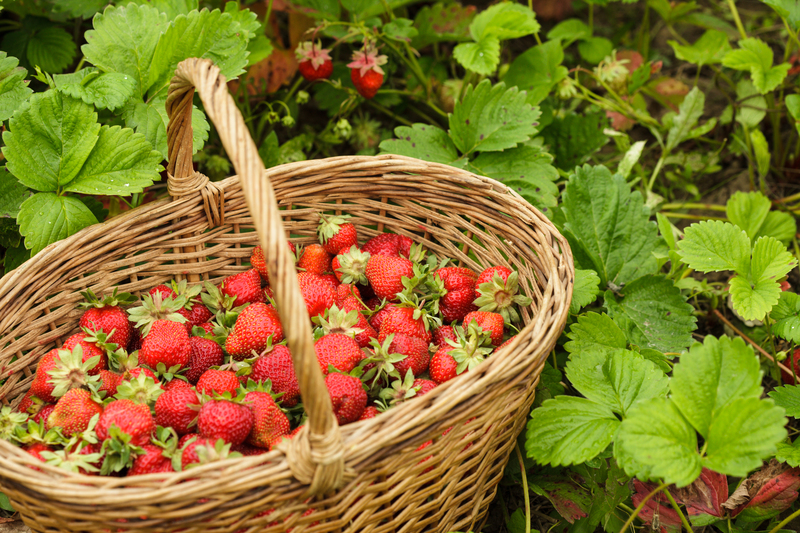Gardening's Role in Fighting Climate Change
Posted on 13/03/2025
Climate change is one of the most pressing issues of our time, affecting every corner of the planet. As global temperatures rise, ecosystems are thrown into disarray, weather patterns shift dramatically, and sea levels continue to creep upward. While large-scale changes and international policies are crucial in addressing this issue, individual actions also play a significant role. One such impactful action is gardening. This simple and enjoyable activity can make a substantial difference in mitigating climate change. Let's delve into how gardening contributes to this global cause.
Carbon Sequestration
Plants play a vital role in absorbing carbon dioxide (CO2) from the atmosphere, a process known as carbon sequestration. While forests are often highlighted for their carbon-storing capabilities, gardens can also serve as effective carbon sinks. By growing a variety of plants, shrubs, and trees in your garden, you increase the amount of CO2 being pulled from the atmosphere and stored in plant material and soil.

Pollution Reduction
Gardens contribute to reducing pollution in multiple ways. Firstly, they act as natural air filters, absorbing pollutants and particulates. Secondly, by growing your own fruits and vegetables, you reduce the need for commercially grown produce, which often requires transportation that emits greenhouse gases. Lastly, gardens can decrease the reliance on fossil-fuel-powered lawn equipment, such as mowers and leaf blowers.
Water Management
Climate change intensifies weather extremes, leading to periods of heavy rainfall and long droughts. Well-designed gardens can help manage water more effectively, reducing runoff and improving groundwater recharge. Using rain barrels, mulching, and planting drought-tolerant species can make gardens more resilient and less dependent on supplemental watering, further conserving water resources.
Biodiversity Conservation
Biodiverse gardens encourage a wide range of plants and animals, which can be crucial for climate resilience. Diverse ecosystems are more resilient to pests, diseases, and extreme weather conditions. By fostering local flora and fauna, gardeners contribute to the stability and health of their local ecosystems, making them more robust against climate change.
Soil Health
Healthy soil is crucial for carbon sequestration and plant growth. Gardening practices such as composting, using organic fertilizers, and avoiding synthetic chemicals enhance soil health. Rich, organic soil can store more carbon and support a diverse microbial ecosystem, both of which are crucial for climate change mitigation.
Community and Education
Gardens, particularly community gardens, serve as valuable educational tools for raising awareness about climate change and promoting sustainable practices. By participating in community gardening, individuals learn about the importance of plants in our ecosystem, how to grow food sustainably, and the role of biodiversity in combating climate change.
Pros and Cons of Gardening for Climate Change
Pros:
- Enhances carbon sequestration
- Reduces pollution
- Improves water management
- Promotes biodiversity
- Improves soil health
- Boosts community engagement and education
Cons:
- Requires time and effort
- Initial setup costs can be high
- Potential for the use of non-sustainable gardening products
- Requires regular maintenance
Tips for Climate-Friendly Gardening
- Use native plants: They are more adapted to local climates and require less water and care.
- Compost kitchen scraps and garden waste: This reduces methane emissions from landfills and enriches your soil.
- Minimize the use of chemicals: Opt for natural pest control methods and organic fertilizers.
- Collect rainwater: Use barrels to collect and store rainwater for garden use, reducing the reliance on tap water.
- Grow your own food: Reduces the carbon footprint associated with food transportation.
- Create a pollinator garden: Plant flowers that attract bees, butterflies, and other pollinators, supporting local biodiversity.

Takeaways
Gardening is more than a hobby; it's a powerful tool in the fight against climate change. From improving air and soil quality to conserving water and fostering biodiversity, gardens offer multiple environmental benefits. While it requires some effort and initial investment, the rewards in terms of climate impact, personal satisfaction, and community involvement are invaluable.
Conclusion
In conclusion, gardening plays a multifaceted role in combating climate change. By engaging in eco-friendly gardening practices, individuals contribute to reducing carbon emissions, conserving water, and promoting biodiversity. Though it requires commitment and effort, the cumulative impact of individual gardens can be significant. As we strive to mitigate the effects of climate change, turning to our own backyards for solutions proves that small actions can lead to substantial results. Whether you're a seasoned gardener or new to the activity, your garden has the potential to be a green sanctuary for the planet.
Latest Posts
Essential Tools for Passionate Gardeners
Top 9 Gardening Tips for Newbies
Top Edible Wild UK Plants and Flowers



